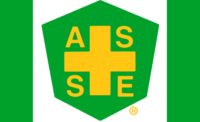ASSE President’s message
Our Pursuit of Professionalism

From the March issue of Professional Safety Journal and the ASSE President's Blog:
Since ancient times, safety and health laws have prescribed both remedies and retributions for a variety of situations. For example, the Book of Leviticus provided explicit instructions to priests for dealing with fabrics soiled with mold. The 282 pre-biblical laws set forth by Babylonian king Hammurabi (Code of Hammurabi) are clear-cut in terms of conduct and justice, with severe penalties for construction incidents. For example, “If a builder builds a house for someone and does not construct it properly, and the house which he built falls in and kills its owner, then that builder shall be put to death.”
So if you were a home builder in Mesopotamia, who did you turn to for construction safety expertise? And how did you determine what was an acceptable level of risk? These are some of the same questions facing employers today, several thousand years later. Many are sharply focused on the concept of reducing organizational risk, yet they too often fail to call on the unique skills and expertise of OSH professionals.
Why is this so? As a newer profession, the OSH profession has not yet forged the solid identity and territory common of a mature profession such as the law, medicine or theology. This leaves our profession vulnerable to competition from other disciplines that wish to place stakes in our territory.
It also leaves the door wide open for OSH roles to be filled by unqualified individuals. While each of us knows that tasking a human resources manager with OSH responsibilities could prove disastrous if that individual does not possess the core competencies needed to manage life-saving decisions, not all employers recognize this important truth.
One root cause of this problem is the fact that we have not yet established a meaningful occupational closure for entry into the OSH profession. As a result, our image will continue to suffer when employers and customers encounter OSH “professionals” who do not have the qualifications, skills or experience needed to offer credible counsel on critical matters involving safety and health. This issue requires our attention. We must do more to ensure that employers hire only competent, adaptive OSH professionals.
As our professional association and primary advocate, ASSE is constantly reevaluating all the tenets of professional OSH practice to ensure that we anticipate and adapt to changing knowledge needs, understand the evolving work environment and thrive within any economy. To that end, ASSE has undertaken a series of initiatives in the past few years to put all members on the road to professionalism.
One prong of this effort is our work with other global organizations through the International Network of Safety and Health Practitioner Organizations (INSHPO) to develop a globally informed capability framework that will establish formal entry requirements for the OSH profession. Ultimately, this framework will define core competencies for representative OSH roles, create guidelines for certification programs and provide a model code of conduct. I encourage you to download and read INSHPO’s report on this framework at http://bit.ly/1T8D0ur.
Another prong is the convening of a group of subject-matter experts from all areas of OSH practice to to develop a literature-based, consensus set of knowledge domains for the OSH profession. These experts recently reconvened to help develop a consensus set of learning outcomes that will become a model for OSH baccalaureate programs and inform the criteria ASSE uses to accredit safety-related baccalaureate programs through ABET. This action will ensure that graduates emerge with the knowledge and skills necessary to tackle today’s and tomorrow’s safety management needs.
Related efforts include the reaffirmation of ANSI/ASSE Z590.2, Criteria for Establishing the Scope and Functions of the Professional Safety Position, and the publication of The ASSE Guide to Hiring the Right OSH Professional, which aims to help employers understand the different levels of OSH practice and the requisite competencies needed at each level.
Our move toward greater professionalism will produce many benefits for the profession and for each of us as well. Our profession will have a strong pool of highly educated and qualified individuals. Our employers will recognize us as trusted advisors who are committed to furthering organizational goals. Our employees will be confident that we will act passionately and with integrity to protect their well-being. And the public will know who we are and what we do.
Looking for a reprint of this article?
From high-res PDFs to custom plaques, order your copy today!




